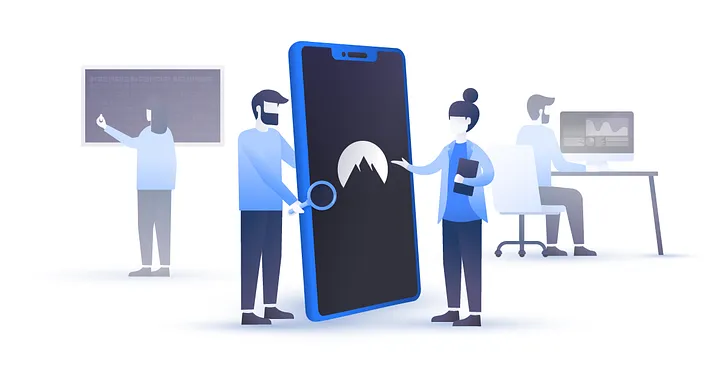In an era where online privacy is constantly under threat, securing your online presence has become more crucial than ever. Virtual Private Networks (VPNs) provide a robust solution to protect your data from prying eyes. I have explored various aspects of VPNs and their functionalities, and I’m sharing my tips to ensure you get the most out of them.
✅ Current deal: 🔥 Get NordVPN with up to 75% OFF! 🔥

Understanding VPNs
A Virtual Private Network establishes a secure connection between your device and the internet. It encrypts your internet traffic and masks your IP address, thereby enhancing your online anonymity. When I first started using a VPN, I was amazed at how it transformed my browsing experience. Knowing that my data was shielded from hackers, snoopers, and even my Internet Service Provider (ISP) gave me peace of mind.
Why Use a VPN?
VPNs offer multiple benefits, including:
- Privacy Protection: Your internet activity is hidden from unsolicited view.
- Data Encryption: Sensitive information is scrambled, making it unreadable to malicious actors.
- Access to Restricted Content: Bypass geographic restrictions and access content from anywhere.
- Secured Public Wi-Fi: Protect your data when using unsecured networks in cafes, airports, etc.
- Avoid Bandwidth Throttling: Experience quicker internet speeds by bypassing ISP limitations on certain sites.
Tips for Securing Your Online Presence with VPNs
Here are my top tips for effectively using VPNs to enhance your online security:
1. Choose a Reliable VPN Provider
The VPN market is crowded, making it essential to choose a trustworthy provider. I personally recommend looking for providers with a strong reputation, robust encryption protocols, and a clear no-logs policy. Features such as a kill switch, which disconnects you from the internet immediately if the VPN drops, are also important.
2. Use Strong Encryption
Not all VPNs use the same level of encryption. I always opt for VPN services that employ AES-256 bit encryption as it provides the best security for my data. Ensure the provider uses secure protocols, such as OpenVPN or IKEv2, to enhance your data protection.
3. Enable the Kill Switch
One feature I never overlook is the kill switch. This tool automatically cuts your internet connection if the VPN connection fails, ensuring that your data isn’t exposed during a drop. Whether I’m streaming videos, doing online banking, or handling sensitive information, this feature provides an extra layer of security I can count on.
4. Be Cautious with Free VPNs
While free VPNs may seem appealing, I advise caution. Many of these services compromise your privacy by tracking your online behavior and selling your data to third parties. If your privacy is important to you, investing in a reputable paid VPN is a small price to pay.
5. Regularly Update Your VPN Software
VPN providers frequently release updates to improve both functionality and security. I make it a habit to regularly check for updates, ensuring I’m using the latest version. Updated software can protect you from potential vulnerabilities that could be exploited by cybercriminals.
6. Check the VPN’s DNS Leak Protection
DNS leaks can inadvertently expose your browsing data, even when using a VPN. I recommend testing your VPN for DNS leaks to ensure that your online activity remains private. Tools are available online to help you check for leaks and confirm whether your VPN is performing as expected.
Additional Layers of Security
While VPNs provide significant security benefits, they should not be the only tool in your cybersecurity toolkit. I often combine VPN usage with other security measures for better protection.
2FA for Extra Security
Enabling Two-Factor Authentication (2FA) on my accounts adds an extra layer of security. Even if someone manages to get hold of my password, the second step in the verification process will block unauthorized access.
Use Strong Passwords
I cannot stress enough the importance of using strong, unique passwords. Utilizing a password manager can simplify the task of managing several complex passwords securely.
Keep Your Devices Secure
It’s essential to keep the devices you use for online activities secure. I regularly update the operating systems and applications on all my devices to protect against known vulnerabilities.
Be Mindful of Phishing Attempts
Even with a VPN, I remain cautious of phishing emails and suspicious links. Always verify the source before clicking on links or entering sensitive information.
✅ Current deal: 🔥 Get NordVPN with up to 75% OFF! 🔥
Conclusion
Securing your online presence is an ongoing task that requires vigilance and the right tools. While VPNs certainly enhance your security and privacy, they should be one component of a comprehensive approach to online protection. By following these tips, I’ve managed to create a more secure online environment, and I encourage you to do the same. Your digital safety is crucial, and investing in the right tools and practices today can save you headaches down the line.
Affiliate Disclosure: By clicking on our links, we may earn commissions at no additional cost to you.